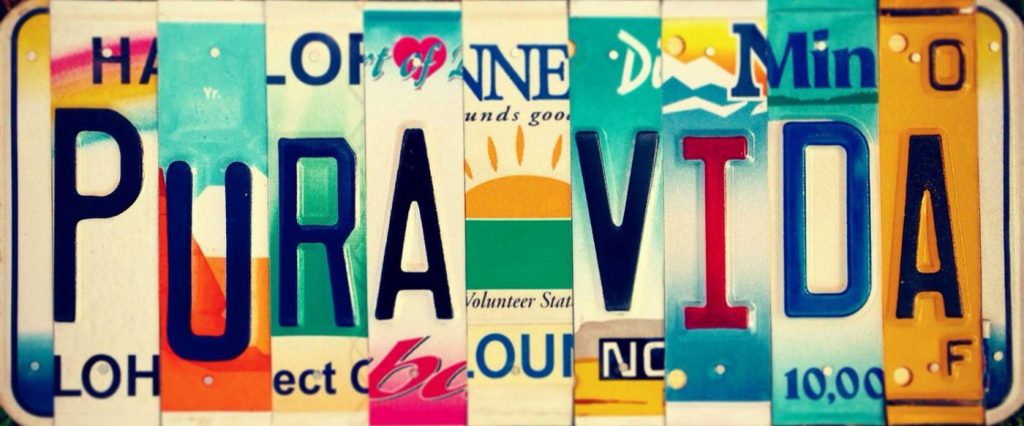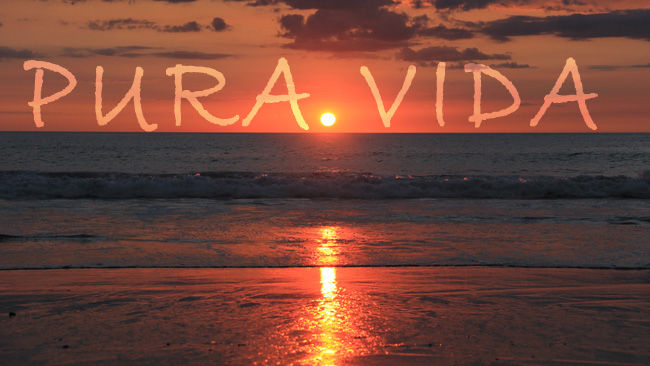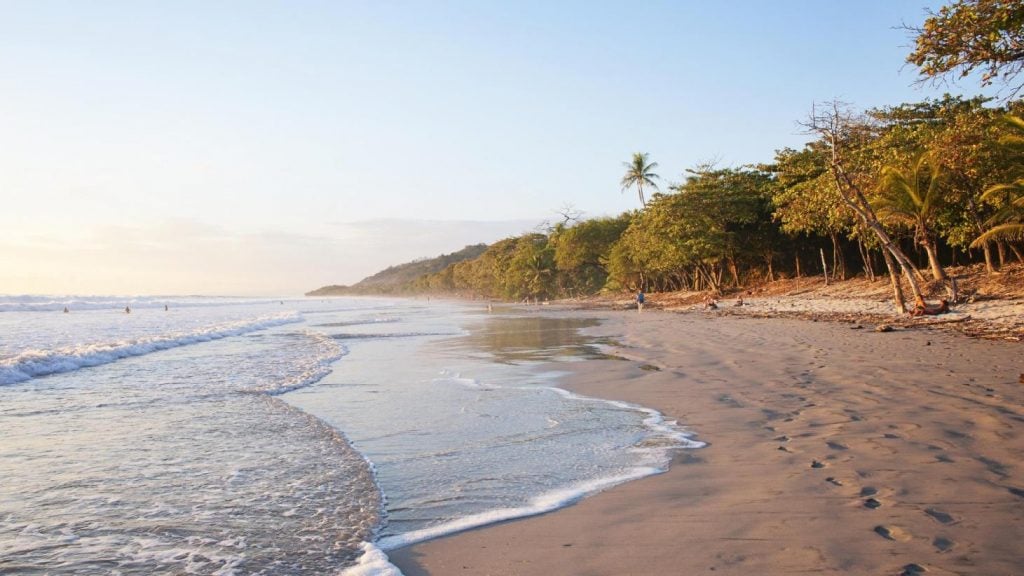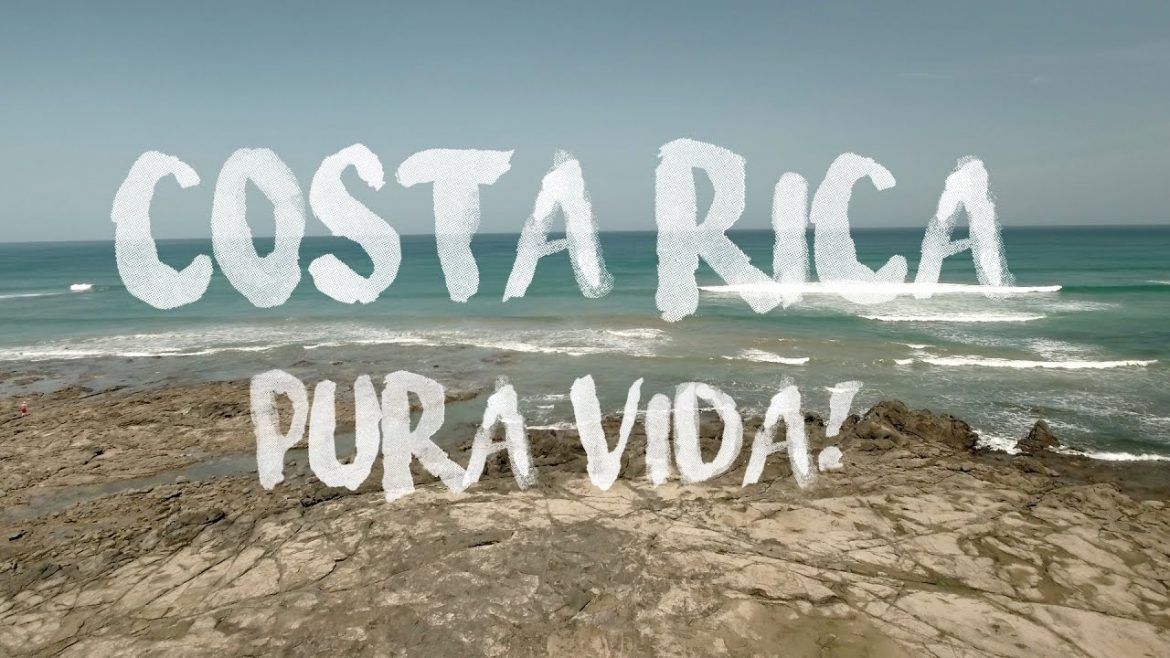Trying to get to the bottom of this whole pura vida thing in Costa Rica.
It’s the age-old question about Costa Rica, asked by expats and tourists alike. Heck, even Costa Ricans have a hundred different answers when asked.
There’s no one answer to the pura vida question. All we know, all anyone who’s ever spent any time in Costa Rica knows, is that there’s nothing more quintessentially Costa Rican than pura vida.
Well, maybe chiliguaros and gallo pinto are as quintessential, but that’s another story.
What many people don’t know is that pura vida isn’t that old as a concept. And it doesn’t even come from Costa Rica.

Sure, right now, there’s nothing more Costa Rican than pura vida, but it’s something the Ticos “borrowed” from, of all countries, Mexico. Wait, what?
Yep, that’s right. Pura vida comes from a 1956 Mexican movie of the same name, where the lead character, played by Antonio Espino, keeps up a positive outlook on life, despite being terminally unlucky.
He used the term “pura vida” throughout the film to describe certain people, objects, and situations.
Ticos watched it and started saying pura vida themselves. The phrase caught on and became a byword for, well, anything anyone wanted it to be for.
By the mid-90s, pura vida was so ingrained into Costa Rican culture, the fact that it came from a 1950s Mexican movie was long forgotten.
If you know Costa Rica, you know Mexico is a massive rival, particularly when it comes to football, and, well, culture in general.
So Costa Rica’s beloved motto being from Mexico might come as a bitter blow. But it shouldn’t. It’s fantastic how Costa Rica turned pura vida into its own concept. It’s the most pura vida thing in the world, when you think about it.
I mean, what’s more pura vida than a country so welcoming of other cultures and guests, taking to heart something from elsewhere and turning into their own?
So what does pura vida actually mean to people? It’s something tourists ask a lot, so let’s see what the Costa Rican tourism community thinks.
Four people, four different answers. There’s nothing more pura vida than that! An American travel agent, an Argentinean property manager, a Costa Rican rental car operator, and a Canadian restaurant owner/fishing guide all weigh in on what pura vida means to them.

The travel agent – Casey Halloran, CEO of Costa Rican Vacations:
“Twenty years living here and it’s only now I’m starting to get it. In my view, pura vida is more than a lifestyle or a belief system. It’s an economic model; a fair trade between travelers, locals, the environment, and the tourist industry. I never saw this more clearly than now. I believe it’s what makes Costa Rica so special and a leader in sustainable tourism. I hope that we are able to protect and strengthen it in the recovery.”
The property manager – Joachin Rodriguez, Marketing and Sales Director of Stay In Costa Rica:
“Pura vida is a happy way of living that all Ticos have. It’s the way Costa Ricans accept what comes their way with good graces and a positive attitude. You don’t see that elsewhere, and for me, that sums up the essence of what pura vida is. Another essence of pura vida is how calm everyone is. No-one’s in a rush at all. That can be tough for foreigners to get used to, but once you do, you’ve achieved pura vida.”
The rental car company owner – Katia Enriquez Oreamuno from Adobe Rental Cars:
“Pura vida is the way we see things and interact with situations. Everyone has pressure, but pura vida represents the way we deal with things. It’s about understanding we can’t control everything and accepting that.”

The restaurant owner and fishing guide – Aaron Atkey from La Cevicheria and Peninsula Fishing, Santa Teresa:
“To me pura vida is something tangible, a physical thing. It’s the magic of nature, you know? For example, pura vida is being out kayak fishing and seeing a humpback whale come up for air a few meters from you. There’s nothing more pura vida than that! Or it’s surfing at dawn with a close friend and no-one else in the water apart from you two. Or it’s watching the faces of people eating food you’ve prepared yourself, with fish you’ve caught yourself, and they’re loving it. To me, that also sums up pura vida. It’s a lifestyle.”
And what about me? What do I think pura vida is?
Well, I’ve been in Costa Rica a long time myself, but I’m just a humble writer, with no worthy opinions of my own. But I’ll offer one anyway.
To me, pura vida is everything they’ve said above. After all, there’s no one definition, it’s what you believe it is. So whatever someone says pura vida is, that makes it so. Which makes pura vida means everything. And nothing.
Pura vida can also have negative connotations. There’s a cartoon I once saw of a guy dumping sewage into a river while another guy watches.
“Hey what you doing?” says the guy watching.
“Pura vida!” replies the guy dumping sewage.
What this means is that the carefree, happy way of living that epitomizes pura vida can also mean a complete lack of responsibility, of not caring. We can be so laid back that nothing stresses us out, not even dumping trash. I can understand that after 20 years in Costa Rica.
But to me, most of all, pura vida means identity.
I once saw two Costa Ricans who didn’t know each other meet in London, England, which is about the least-pura vida place on earth.
As they chatted, the pura vidas flowed between them. And I admit that I, a non-Costa Rican, felt all warm and cozy inside, and full of love for my adopted country just listening to them.
It could have been that moment, thousands of miles from Costa Rica, that I finally got it. But then what do I know?
James Dyde is the editor of centralamerica.com and lives in Escazu, Costa Rica.

